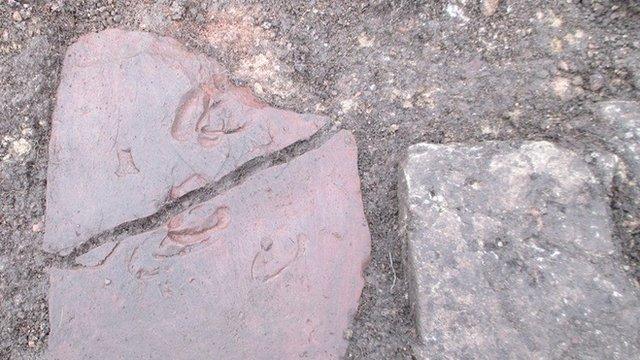Archaeological tests confirm 5th Century mosaic at Chedworth
- Published
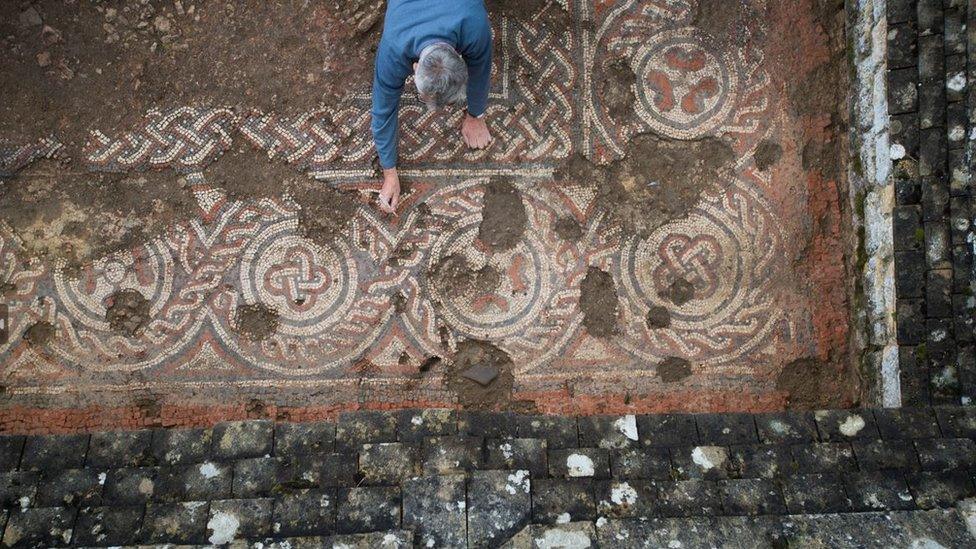
Archaeological tests of the mosaic have revealed what life may have been like in the manor
New tests have confirmed a discovery which challenges the understanding of life in Britain after the Roman Empire.
In 2020, Britain's first known 5th Century mosaic was uncovered at Chedworth Roman Villa in Cheltenham.
New soil samples taken from underneath the mosaic revealed the tiles could not have been laid before 400AD.
Experts say this provides further evidence that sophisticated life at the manor had continued for decades after the country had entered the Dark Ages.
Following the economic crash at the end of the 4th Century, it was widely believed that all towns and villas were largely abandoned, falling into decay within a few years, National Trust archaeologists working at Chedworth said.
As such the discovery of the mosaic, dated to around 400AD, has stirred much debate among historians.
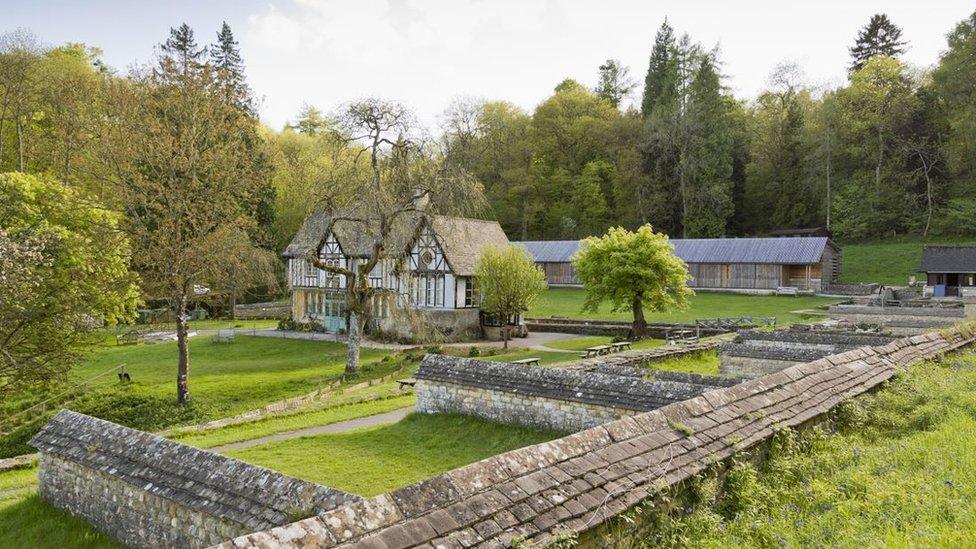
Chedworth Roman Villa is one of the largest and most elaborate Roman villas ever discovered in Britain
Alongside radiocarbon dating tests and pottery found on the site, archaeologists confirmed the findings using Optically Stimulated Luminescence (OSL) to test when the soil particles beneath the tiles were last exposed to sunlight.
"We've used OSL to date several significant archaeological sites in the National Trust, and the additional confirmation provided by both this and our new radiocarbon dates adds weight to our conclusion that this is indeed a 5th Century mosaic," National Trust archaeologist Martin Papworth said.
''We're now continuing our research. Evidence is being gathered from other West Country villa archives to track down additional dating evidence.
"This will put our 5th Century Chedworth dates in context so we can further understand what life would've been like during this period, not only at Chedworth, but within the community of villas and towns that surround it."
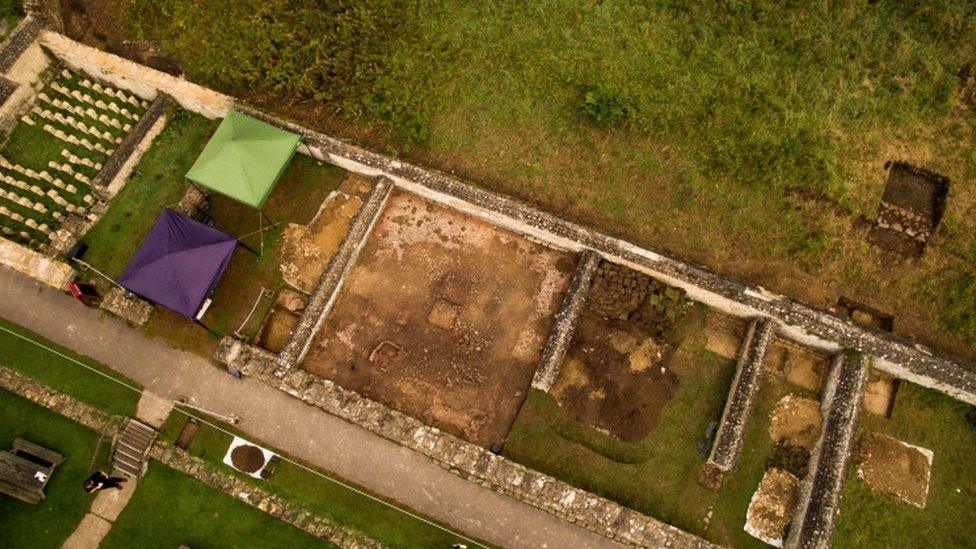
The site was acquired by the National Trust in 1924 to conduct a long-term conservation programme
The archaeologists working at Chedworth have been revisiting their find from 2020 for a new episode of 'Digging for Britain' airing on 11 January and available on iPlayer.
Viewers will be able to follow along with the investigation as further tests are conducted.
The ornate mosaic has now been re-buried following the excavation to protect it from weather damage.

Follow BBC West on Facebook, external, X, external and Instagram, external. Send your story ideas to: bristol@bbc.co.uk , external
Related topics
- Published10 December 2020
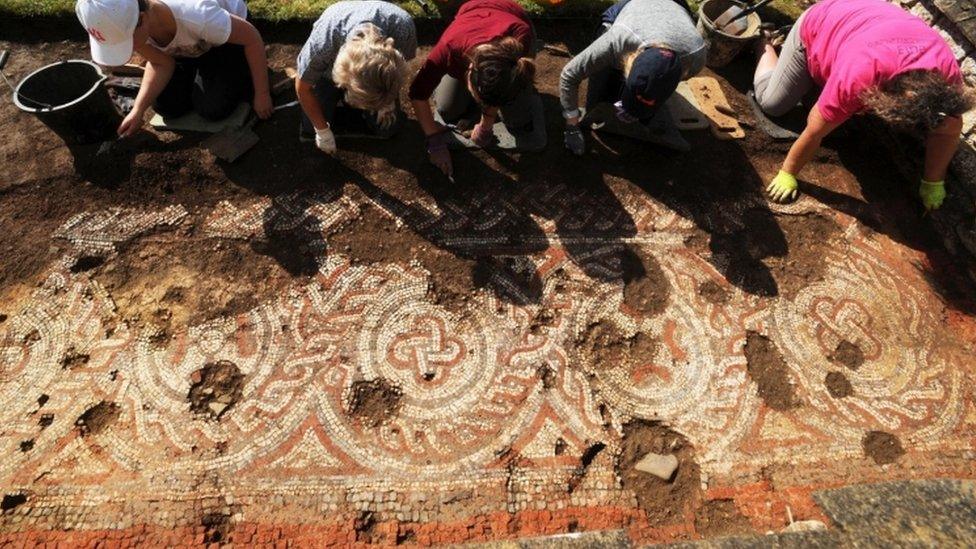
- Published15 August 2016
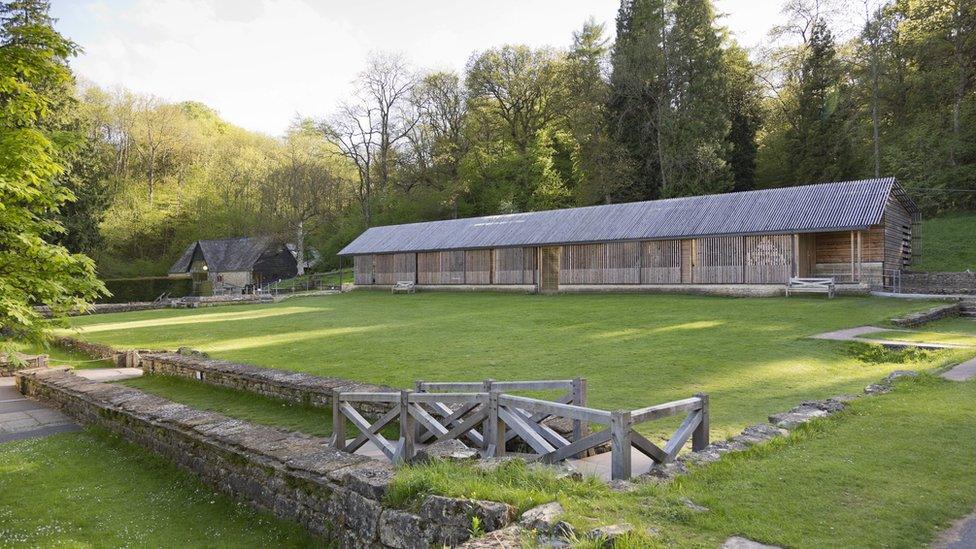
- Published25 August 2015
